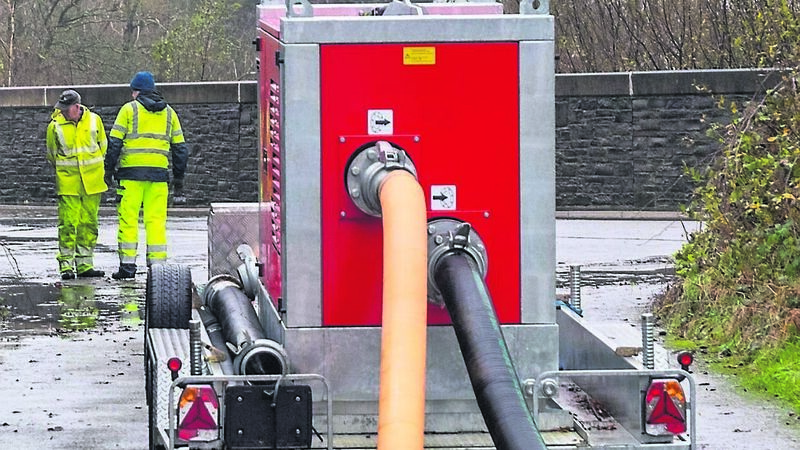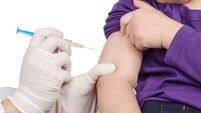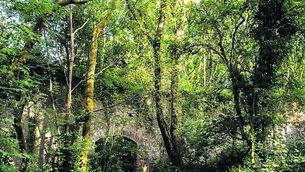As Storm Bert shows, it pays to be prepared for emergencies

I am thinking of the heart-heavy people sweeping muck out of their homes and businesses and throwing possessions in skips.
With the red weather warning and incessant wind and rain over the weekend, I was reminded of a story I covered on a recent episode of RTÉ’s …, about how we make sure we keep babies and young children fed safely during an emergency.
Emergencies can present themselves in many different forms, sudden or slow burning.
Floods forcing home evacuations and extreme storms causing power and water supply outages are among the more acute emergencies. The arrival of large numbers of refugees needing accommodation, or a global pandemic which shuts down society, are the more slowly unfolding crises.
Babies under six months rely on either breast milk or infant formula as a sole source of food, which puts them at serious risk if they are separated from their mother or if the supply of infant formula is compromised during an emergency. Without proper support, they face serious risks such as infections, malnutrition, and illnesses like diarrhoea.
It’s not often I get to coo over adorable babies at work, but earlier in the year I was fortunate to spend a morning admiring babies and interviewing their mothers at a baby yoga class about the topic of feeding babies during emergencies.
Like me, it wasn’t something they had given much consideration to until we started thinking of various emergency scenarios.
For breastfeeding mothers, there is great comfort in knowing they are able to feed their babies anywhere. However, access to good breastfeeding support in the early days and weeks after birth is critical.
During the covid-19 pandemic, the shutdown of health facilities left many mothers without access to specialist help, leading to stress and worry, or, at worst, early cessation of breastfeeding.
In too many Irish communities local water supplies are regularly disrupted, with boil water notices or discoloured water leading to anxiety about accessing safe water to make up a bottle.
Many of the mothers I spoke to had luckily never experienced an emergency situation with their babies, but recognised that having a contingency plan is a good idea.
The World Health Organisation (WHO) has urged all Member States to develop preparedness plans for infant feeding during emergencies. Ireland doesn’t have one yet, but researchers in TU Dublin and Queen’s University Belfast are developing an All-Island plan by early 2025 to address this gap.
Bringing together experts in nutrition, public health, climate change, law, and policy, the project will develop a cross-border strategy to make sure emergency support is not delivered in an ad-hoc way in the future.
There is fierce interest in the General Election in our house.
My kids are thrilled with the extra day off school on Friday and can name all the Cork South Central constituency candidates because their posters line the walk to school and the flyers keep piling up in our letterbox.
We’ve also had candidates call to the door and myself and my husband (not ones to keep our opinions to ourselves!) have had lengthy chats on the doorstep with whoever calls looking for a vote.
My kids even drew up their own election posters - their slogan, ‘Vote for me or else!’
A menacing motto would not pass muster with most, but at least they have a basic understanding of the workings of democracy.
However, not everyone is engaged with the political process. At the last general election in February 2020, 37% of voters didn’t make their voice heard on how they wanted the country run in the next five years.
Of course there will be attrition, people who are away or unable to vote on polling day for whatever reason, but other European countries like Belgium, Denmark, and Sweden enjoy turn-outs of over 80% of the electorate. Is there a general trend of voter apathy and disillusionment in Ireland?
In the last 20 years, voter engagement peaked in the 2011 post-crash election followed by a steady decrease in subsequent elections.
The 2020 general election was the lowest turn-out in 20 years.
How do we remind people that if you care about what the country is going to be like in the next 5, 10, 15 years, then engaging in the political process is essential?
Higher voter turn-out reflects a society where people feel their voices matter and are actively involved in shaping their community’s future.
If Ireland is to face the challenges of poly-crises of housing, health, and climate, it needs citizens who understand the stakes and vote for the person or party they want to create a better future for all.







 App?
App?




